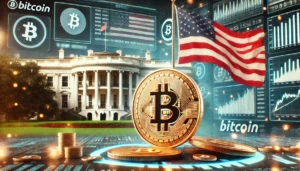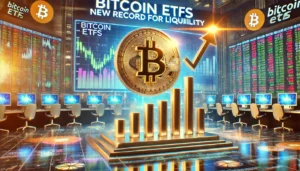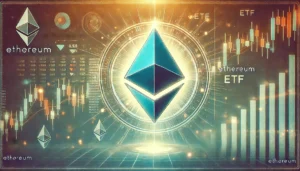Will SEC appeal Ripple decision?
3 min readA bang for the crypto industry. After years of dispute, Ripple was able to win the lawsuit against the US Securities and Exchange Commission – at least partially. On July 13, New York Judge Analisa Torres ruled that XRP is not a security. As long as the token is sold to private investors. However, according to the verdict, sales to institutional investors are to be evaluated as sales of securities.
Brad Garlinghouse, CEO and face of the company behind what is probably the most discussed token in American courtrooms, is optimistic: The decision regarding institutional investors is “negligible”. However, the last word in the Ripple versus SEC case is unlikely to have been spoken yet. Because the US Securities and Exchange Commission can appeal against the verdict.
Appeal Against Recent XRP Decision Seems “Unlikely”
But that’s exactly what Katie Haun, a former US Department of Justice prosecutor, crypto venture investor and board member at Coinbase, thinks is rather “unlikely”.
In a tweet, Haun classified the court ruling in the Ripple versus SEC case, stating: “[…] I’m skeptical that the SEC actually wants legal clarity. The Commission is benefiting from the current confusion and losing these issues on appeal would jeopardize its entire enforcement agenda. So I would be surprised if the SEC were to appeal now.”
Some non-legal advice musings on the Ripple decision, including two main takeaways:
1/ The Court drew a reasonable line and overall it's a good outcome for the industry. For other suits w/ the SEC, we believe the Supreme Court’s “major questions doctrine” will play a larger…
— Kathryn Haun (@katie_haun) July 15, 2023
Overall, the judgment is “quite beneficial for the industry,” Haun continues, “especially for the secondary markets, which are the subject of some ongoing proceedings.”
The Ripple verdict “stands on shaky ground”
John Reed Stark, a former attorney in the SEC’s Enforcement Division, has a different take on things. In a LinkedIn post analyzed he of the court ruling, writing: “The decision is on shaky ground, is likely to be appealed at some point, will result in an annulment and is not necessarily cause for celebration.”
According to Stark, the Ripple decision is “problematic in several ways”. For example, he sees the case law establishing a “class of quasi-securities […], which discriminates and varies according to the level of knowledge of the investor buying the securities”. This falls back to the fact that, according to the verdict, “Ripple’s marketing efforts and business operations were too complicated for an ordinary retail investor to understand, as opposed to an institutional investor who would have understood what investing in a token really means.”
Stark also warns that this court order is “a partial judgment in summary proceedings [handle], which was decided by a single district judge”. Therefore, the decision was “while important and certainly worth investigating, but not a binding precedent for other courts”.
Ripple vs. SEC: Who has the last word?
Brad Garlinghouse can breathe easy at first, looks positively into the future. “The law states that XRP is not a security,” notes the Ripple CEO. It would be “years before the US Securities and Exchange Commission could appeal,” says Garlinghouse.
The most important part of this ruling:
“XRP, as a digital token, is not in and of itself a “contract, transaction[,] or scheme” that embodies the Howey requirements of an investment contract.”
This is a now a matter of law (not up for trial.)
— Brad Garlinghouse (@bgarlinghouse) July 13, 2023
To what extent this assessment is realistic remains to be seen. One can only speculate as to whether and when the SEC will appeal the verdict.
Nevertheless, the decision could have an impact on the US crypto industry and make the location more attractive for crypto service providers again, explains Hagen Weiss, legal advisor to the commercial law firm Dentons. According to the lawyer, an appeal by the SEC is quite possible, but the chances are not ideal.






